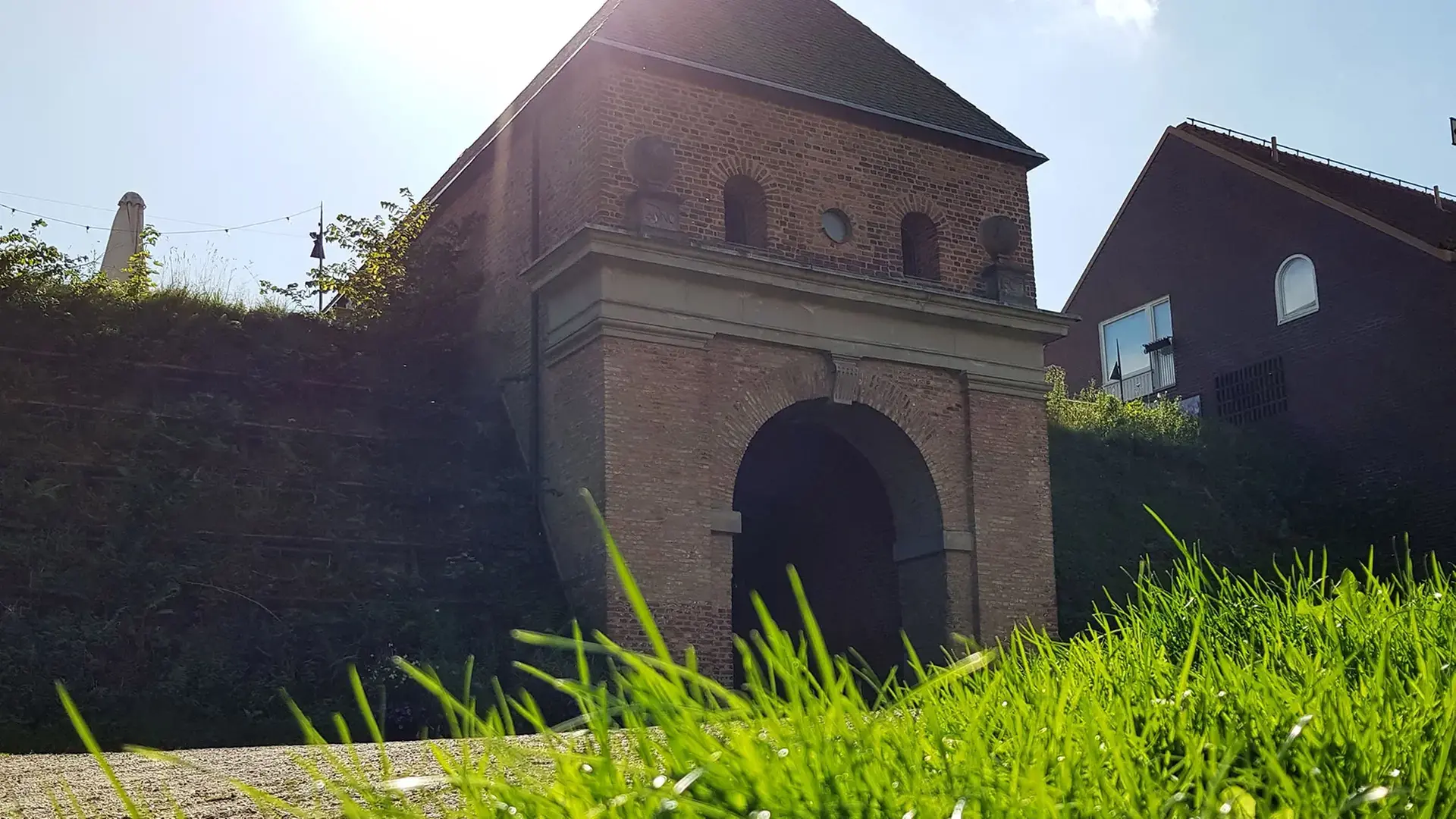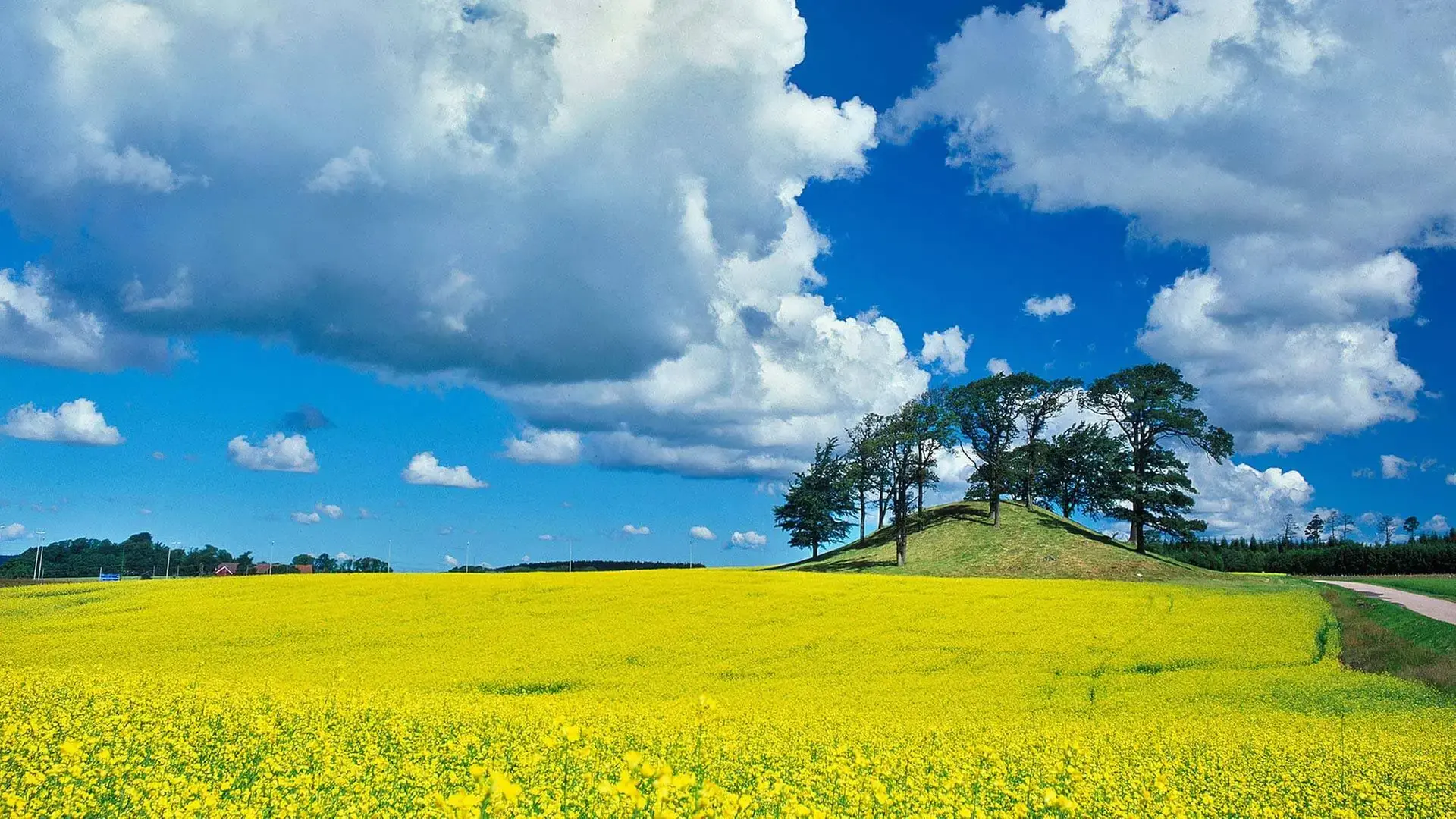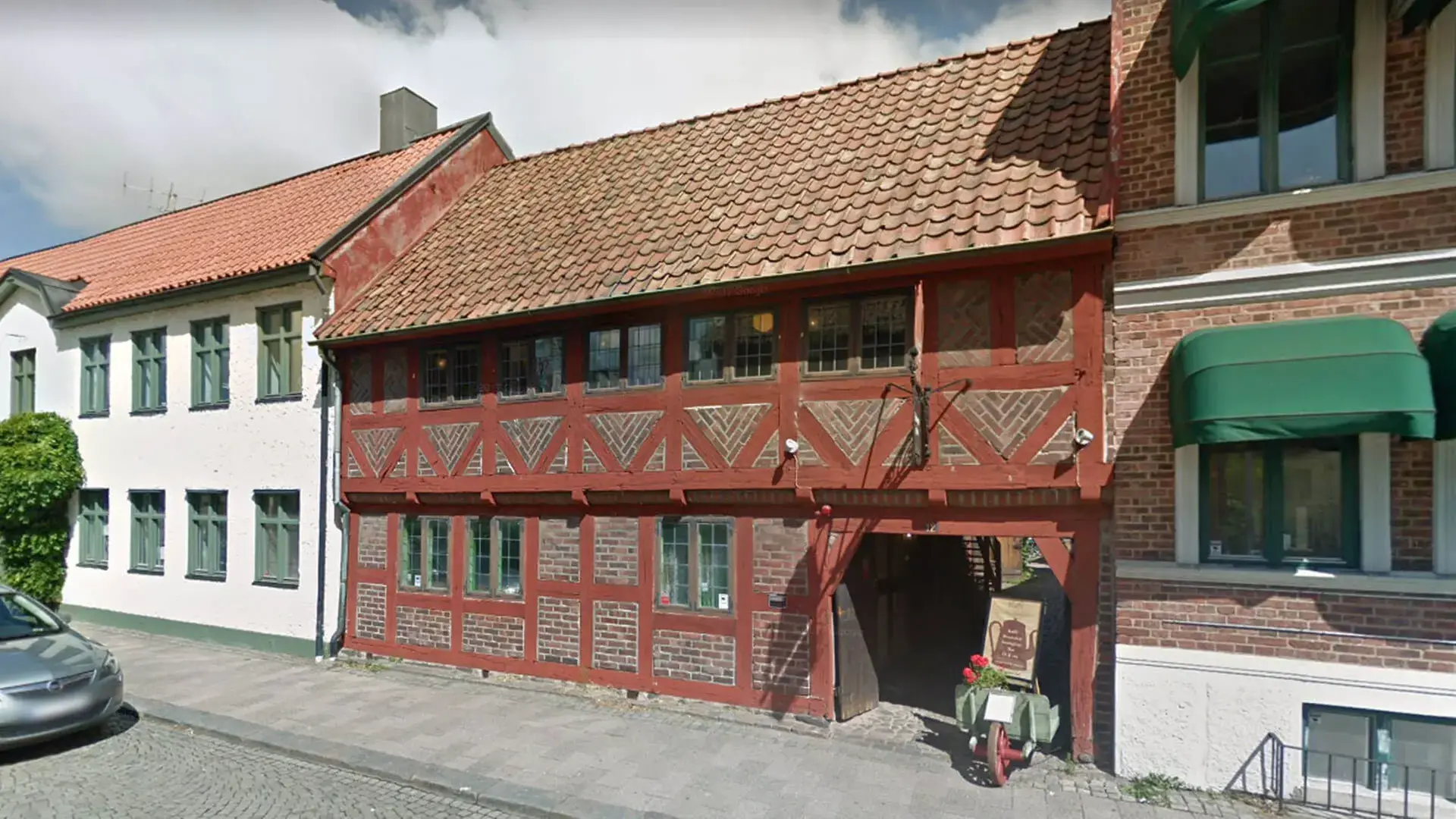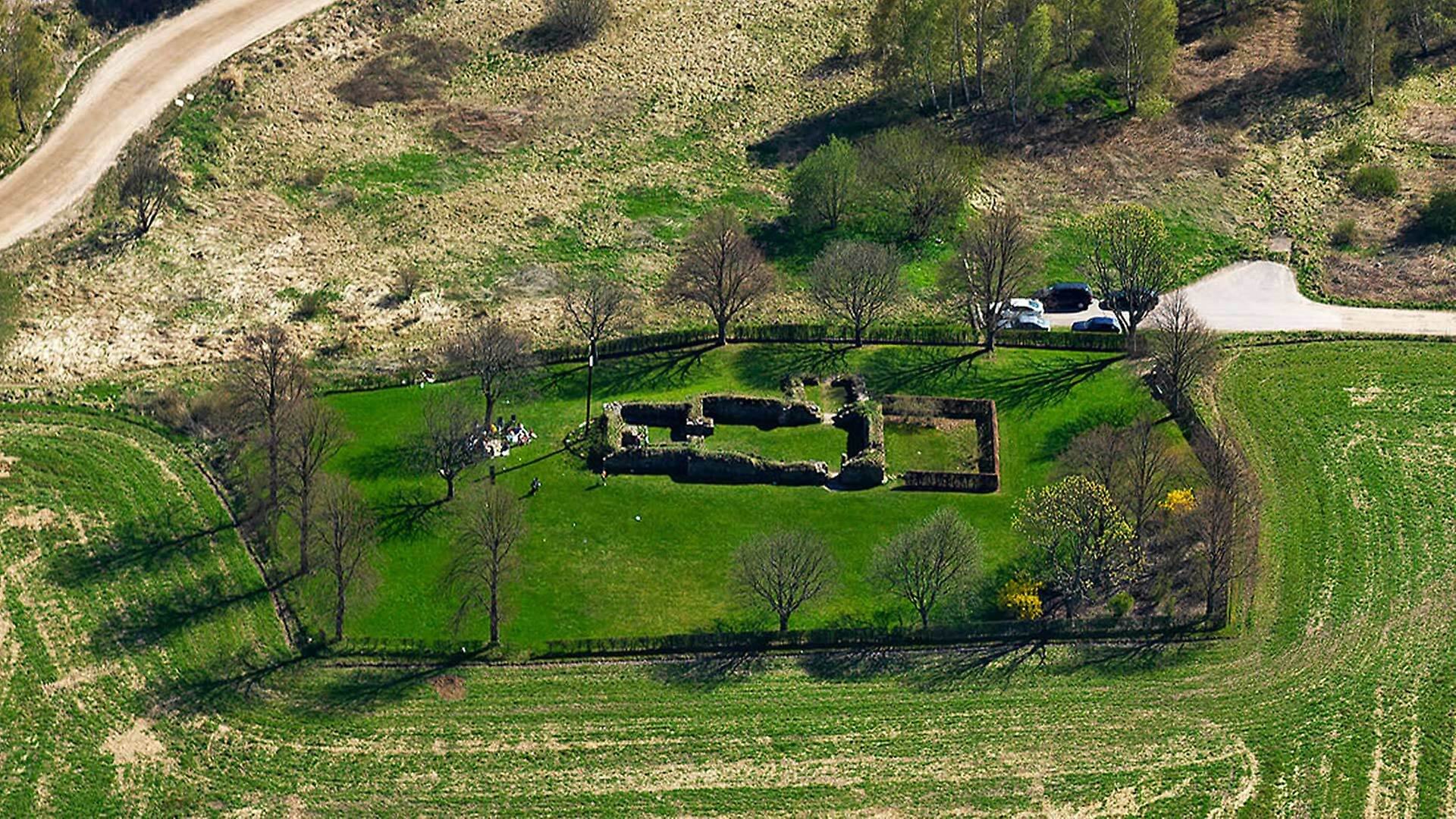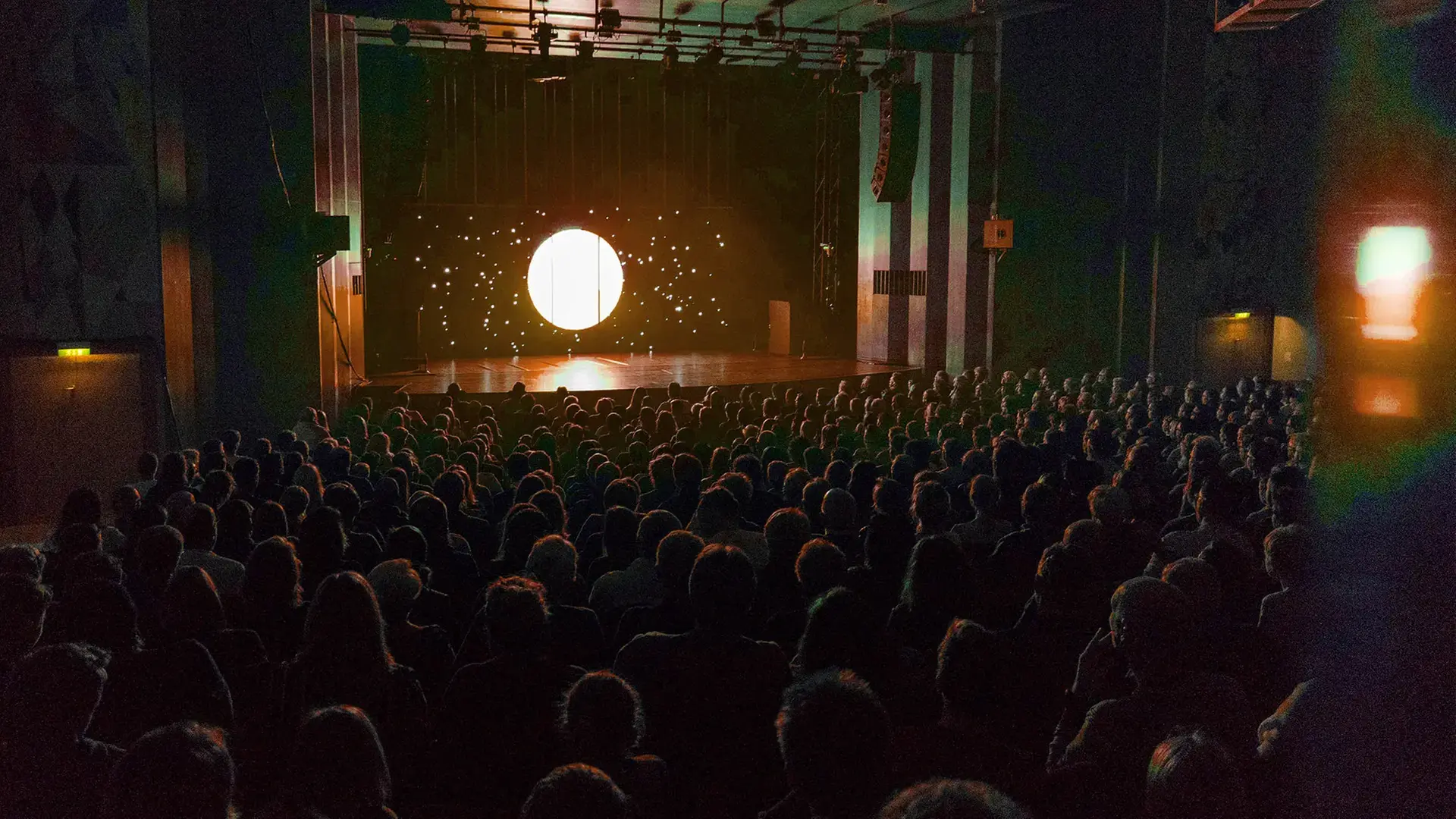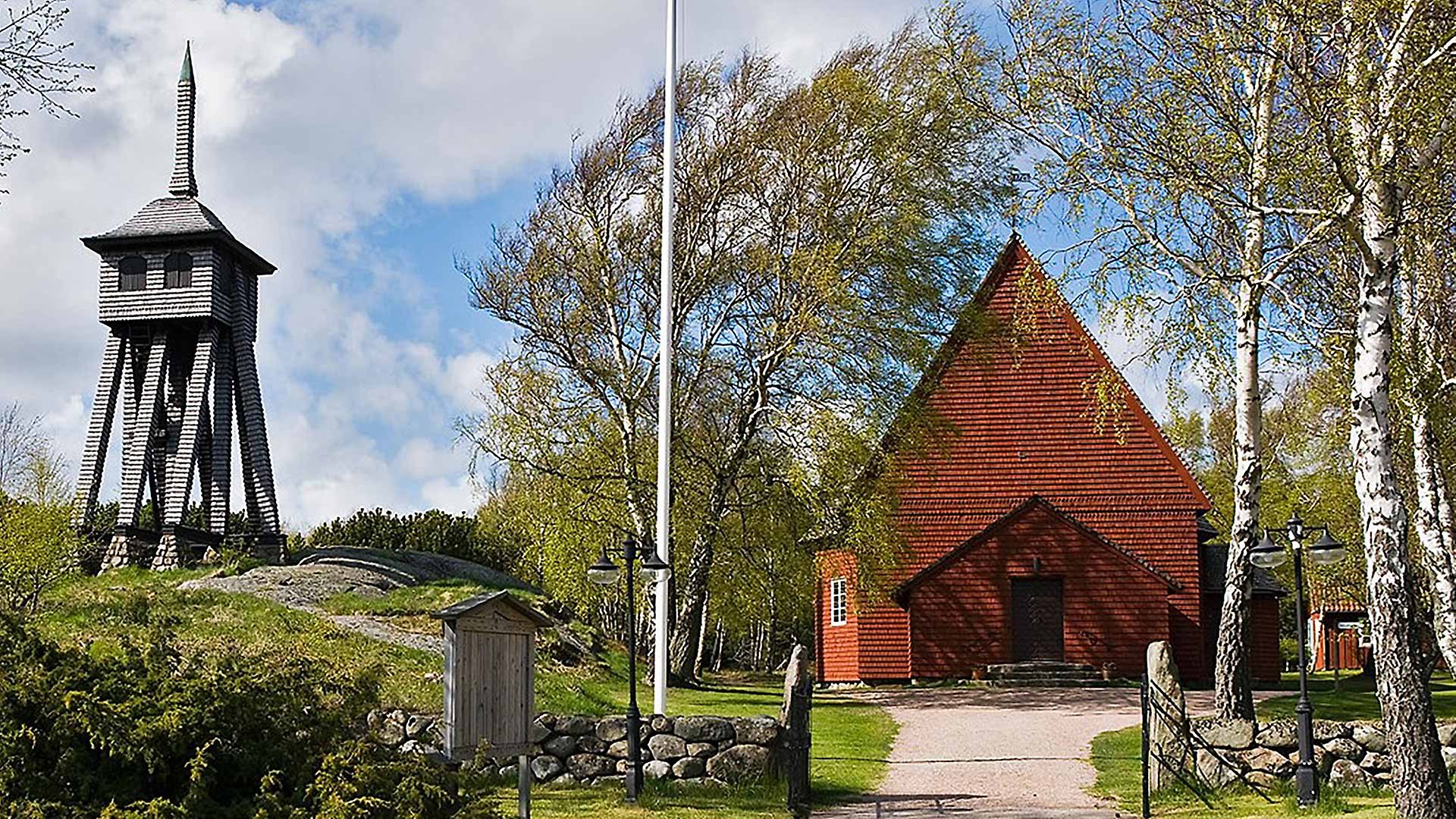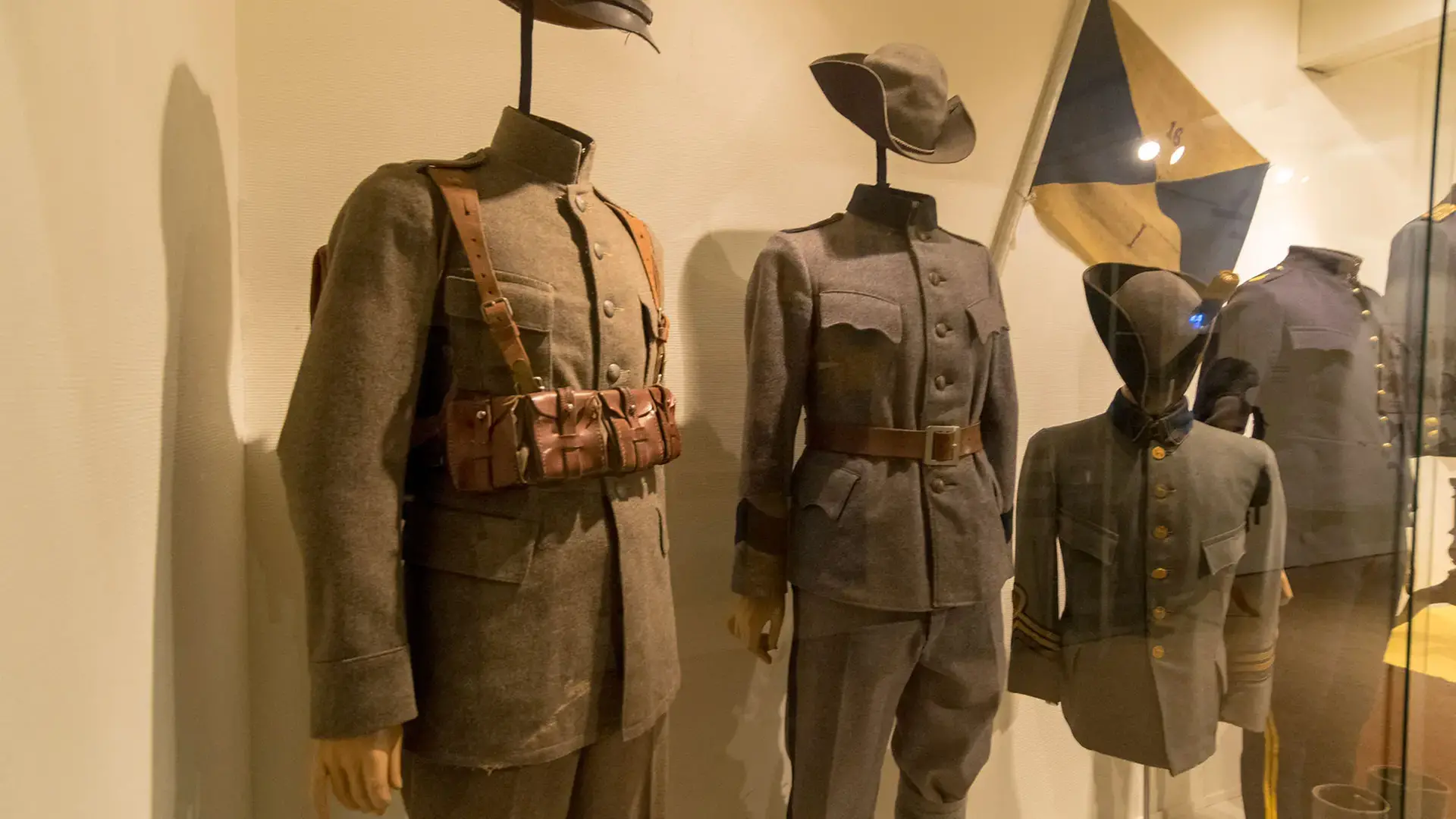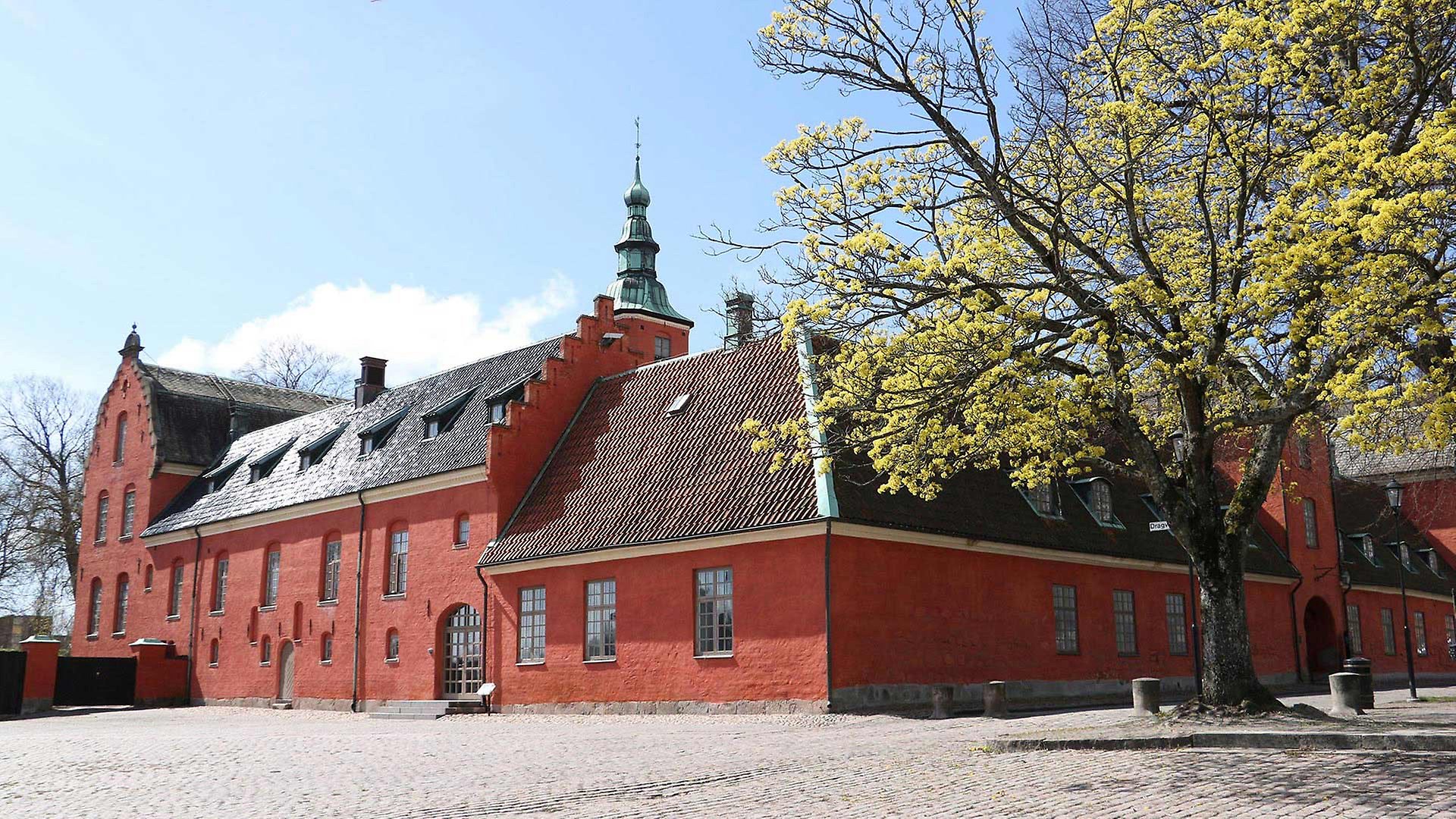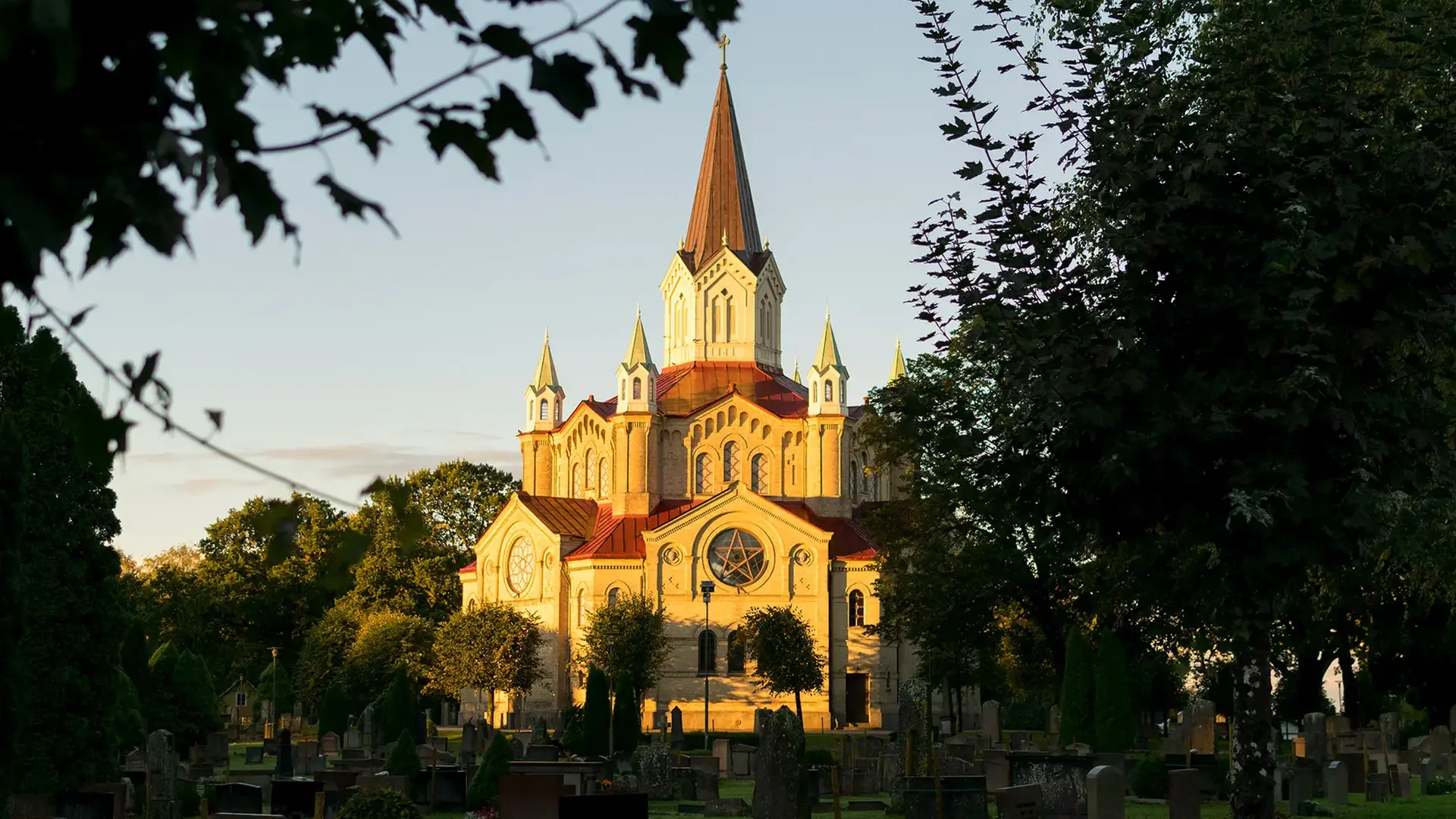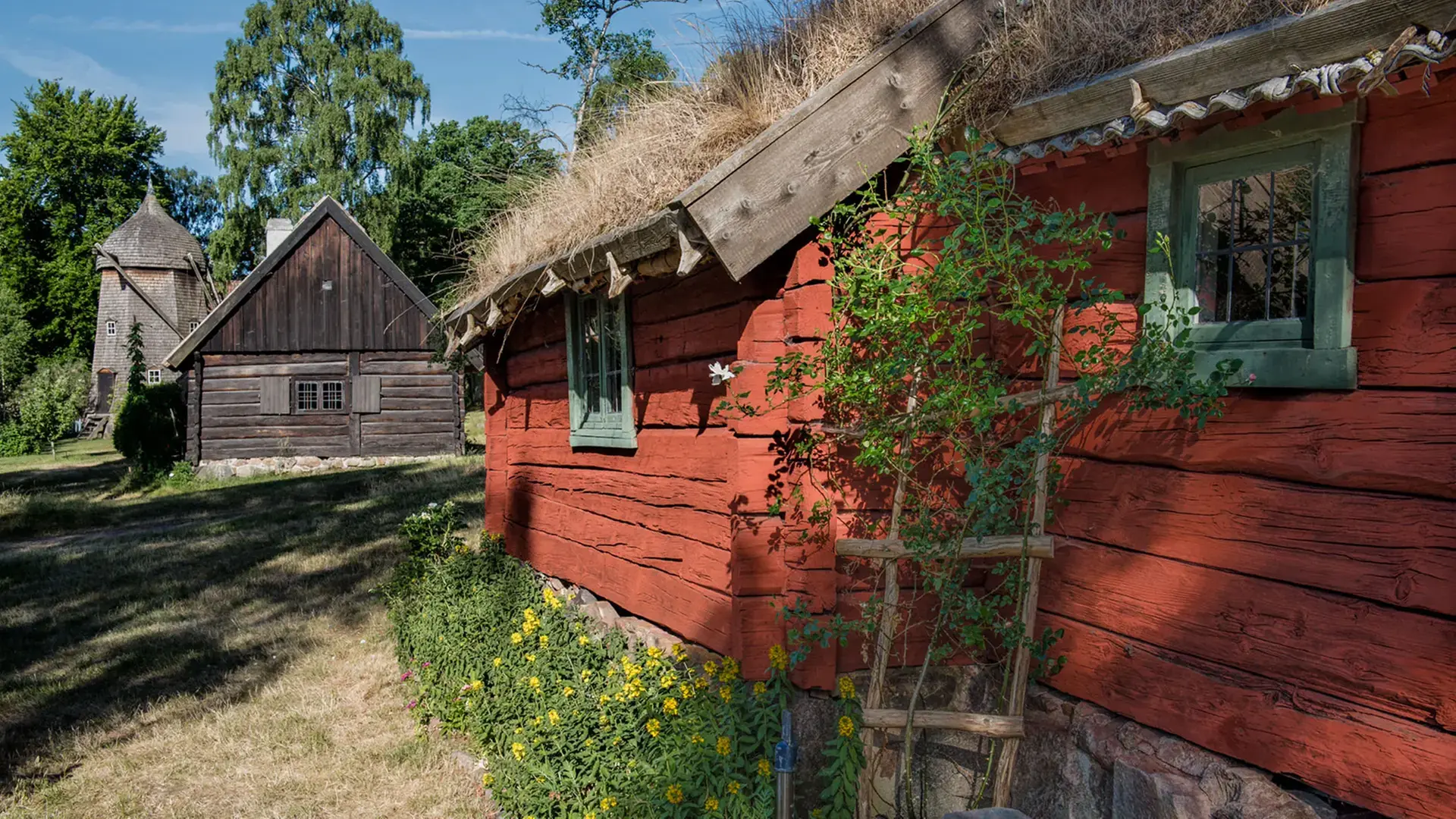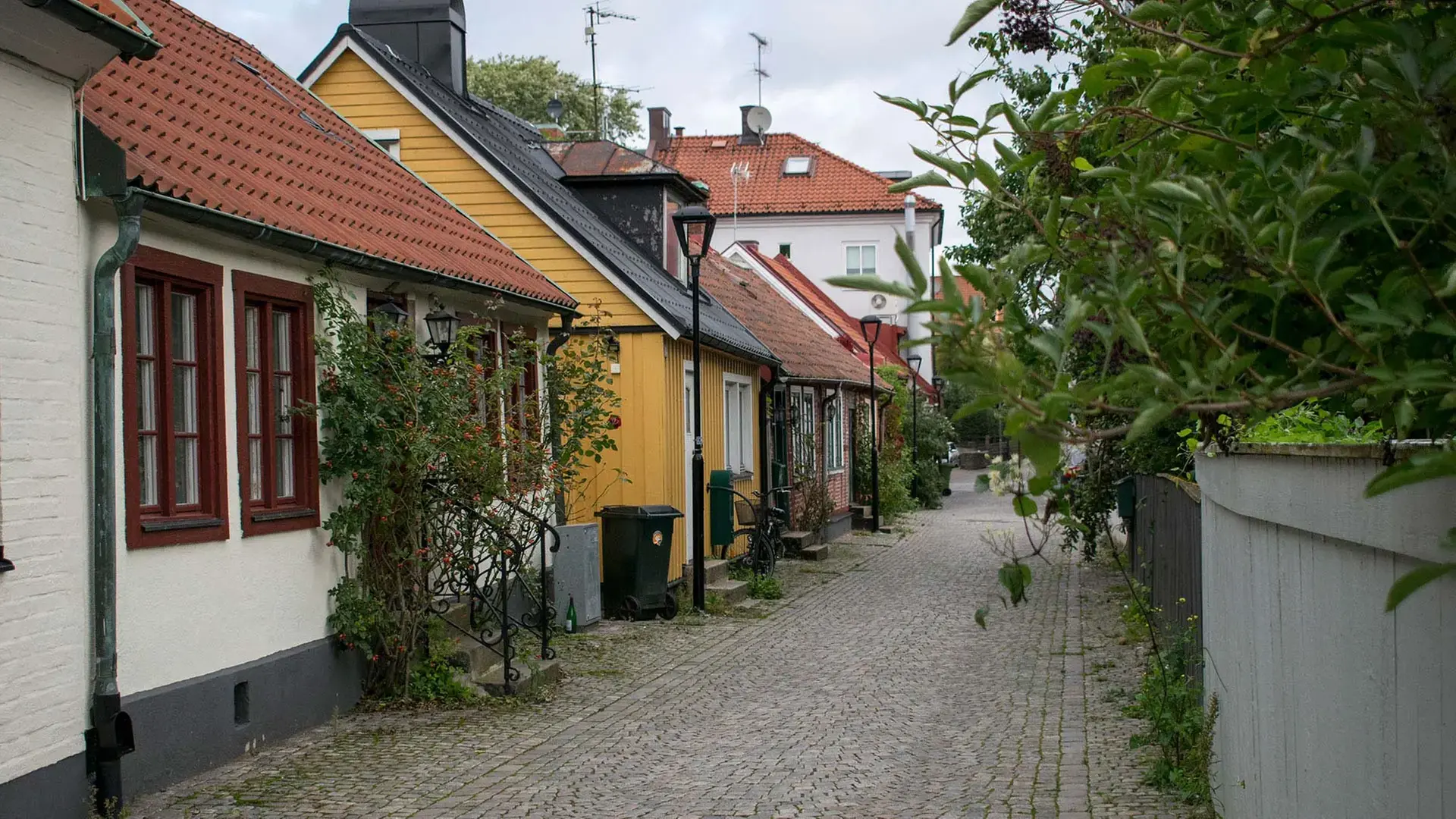- Startsida
- En
- Experience
- Culture and history
- Historic places within the walls
Historic places within the walls
Halmstad City has several historic places and buildings from Halmstad’s early days. It was at the start of the 14th century that the people of Övraby moved to the site we now call Halmstad.
Before and around the fire of 1619
Halmstad Castle
Kristian IV of Denmark had Halmstad Castle built at the start of the 17th century. The castle has been modified, renovated and repainted several times. Nonetheless, the exterior has retained its character. The courtyard is open to the public. Guided tours are held inside the castle every year. Today, the castle is used as the residence of Halland’s county governor.
St. Nikolai Church
Named after the patron saint of seafarers, the church was built in the 15th century It is one of the few buildings that survived the great fire of 1619. However, the spire and roof were destroyed. It is believed that there has been a church on the site ever since the start of the 1330s. The exact date of the present church is unknown. It was mentioned as early as the 1430s in a papal indulgence.
Over the centuries, the church has been restored and rebuilt several times. The most recent restoration of 1938 – 1941 gave the church its present appearance. Do not miss the 17th century pulpit, 15th century font, 14th century grave slabs or the 15th century bell tower and staircase.
Johan Twist’s residence
Much has been written about this building. Some people link it to the monastery located on Lilla torg from the 15th century onwards. Indeed, the vaulted roof is most probably medieval. There are records of one of the buildings in Johan Twist’s residence coming through the 1619 fire. After the restaurant that was here up until the start of the new millennium, the building was once popularly known as Norre Kavaljeren. The building has also served as the city hall’s cellars, a school and one of the Swedish alcohol retailing monopoly’s outlets.
Kirsten Munk’s residence
With its unique, green, glazed-tile façade, this building, despite its name, has nothing to do with Kirsten Munk, King Kristian IV’s consort. The building dates from 1620, the year after Halmstad’s fire. It is believed that the tiles were imported from the Netherlands. Its cellar has a cross-vaulted tile roof and may be older than the residence itself.
Parts of Halmstad’s fortifications
Discover how the fortification wall once ran around Halmstad.
Norre Port
Halmstad’s fortifications were completed in 1601. Norre Port (North Gate) is one of the few parts that is still standing. The gate was saved from demolition in the latter part of the 19th century. Up until 1960, national highway 2 (the old European highway 6) ran along Storgatan and through Norre Port. The upper part of this fortification has served as a museum and gallery.
The casemates
Each of the bastions of Halmstad’s fortifications had a casemate (a room, often built into rock, for artillery pieces to defend a surrounding moat). The old casemates can be seen along one of our roads, Karl XI’s väg. At Klammerdammsgatan, there is an open casemate and at Kyrkogatan there is one that can be viewed from the outside.
Västre Katt
Katt is a Swedish word for an earth mound used by long-range artillery. Halmstad’s fortifications had both a north (“norre”) and a west (“västre”) gun mound. Inside Västre Katt, there are four, long, barrel vaults. When Krönlein’s brewery bought the land in 1849, they were used for storage.
Buildings from the 18th and 19th centuries
Brooktorpsgården
Kyrkogatan 12 is the site of one of Halmstad’s oldest buildings. It was probably built early in the 18th century. Halmstad was once called Brooktorp. The mansion (gård) has been modified and renovated a number of times. Renovation in the middle of the 20th century gave the building its present interior. Today, it houses Brooktorpsgården.
The old pharmacy
At Storgatan 23, there is an incredibly beautiful, half-timbered house often referred to as Gamla Apoteket (the “old pharmacy”). Built in the 18th century, it served as a pharmacy from 1829 to 1905 when a chemicals company, Kronan, moved in and used it as an outlet for its aromatic soaps and creams.
Tre Hjärtan
This building, on Stora torg next to the city hall, was Halmstad’s first county hospital from 1784 to 1835. In 1836, it was bought by Anders Julius Appeltofft, who used it as a beer warehouse and tavern. Today, it is home to a restaurant, Wärdshuset Tre Hjärtan.
Hotell Mårtenson
Ever since it was erected in the middle of the 19th century, this building has been a hotel. It is famously associated with a Swedish TV series (Our time is now) and the character Helga Löwander (played by Suzanne Reuter). In the series, she is referred to as the “aunt in the attic”. The character is based on a real person, Greta Gruber. She was the widow of the man who started Hotell Mårtenson External link, opens in new window. on Storgatan, next to Norre Port. He died in 1969. In his will, he wrote that Greta should be allowed to live on the top floor for as long as she lived and that she should receive her meals free from the hotel.
External link, opens in new window. on Storgatan, next to Norre Port. He died in 1969. In his will, he wrote that Greta should be allowed to live on the top floor for as long as she lived and that she should receive her meals free from the hotel.
The poor house and fire station
Halmstad’s old poor house and the old fire station are next door to each other. Using bricks from Slottsmöllan ( the castle windmill), the poor house was built in two stages in 1857 and 1879. With its beautiful tower, the fire station was built in 1901 and remained in use until 1968. The old fire station houses a pub, The Bull’s. To see the buildings, go to the junction of Bankgatan and Köpmansgatan.
Rotundan
Loved by the people of Halmstad, Rotundan (the rotunda) was built in 1865 as a pavilion for diners at the restaurant that was once on Norre Katt, next to Norre Port. Around the rotunda, you can still make out traces of the moat that, up until 1735, surrounded Halmstad’s fortifications.
More culture and history
More Halmstad
-
Inspiration and guides
Can I bring my dog to Halmstad? No problem!… -
Nature and the outdoor life
Ahh! The Halmstad air! Filled with the tangs… -
Beach and coast
Shimmering sea and colorful sunsets are only… -
Food and drink
Food and drink is not just food and drink.… -
Culture and history
In Halmstad we deliver both culture and history… -
Events
Theatre? Concerts? Art exhibitions? Sport?… -
Spa and wellness
Taking an invigorating dip in the sea, lacing… -
Shopping
Shopping is an experience in itself. Perhaps… -
The Swedish capital of golf
153 golf holes, eight unique resorts in a… -
Good to know
We have gathered together a few practical… -
Accommodation
Where would you like to stay? In a castle… -
Sports and activities
Do you like being active? Raising your pulse,…

